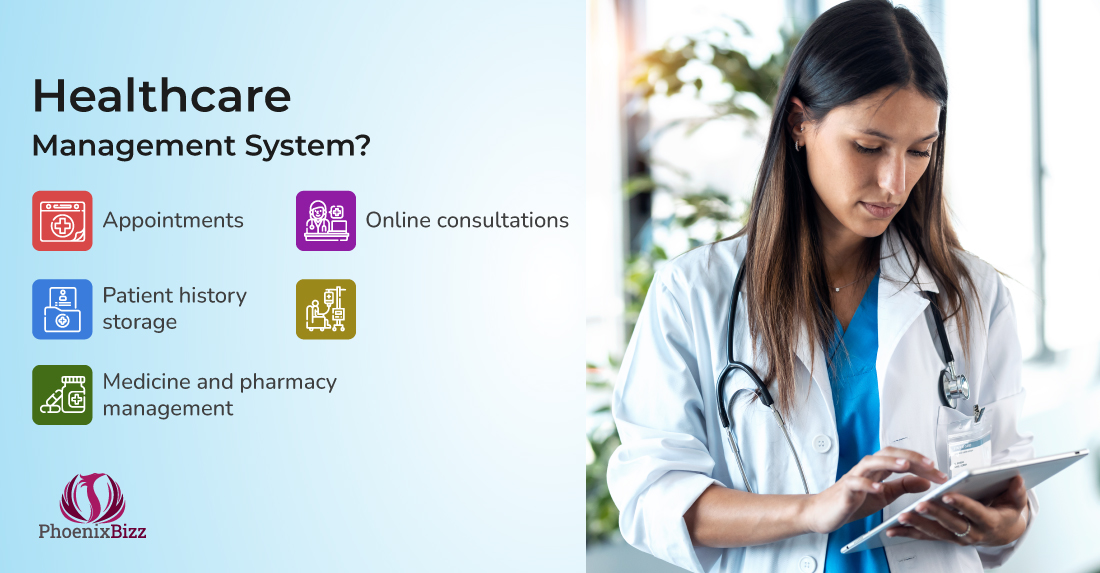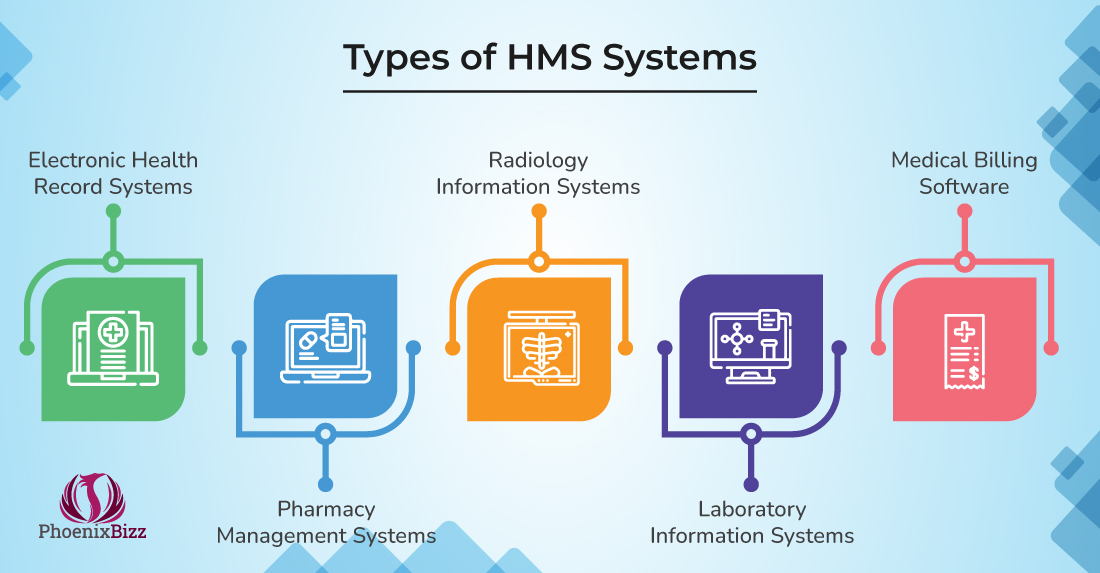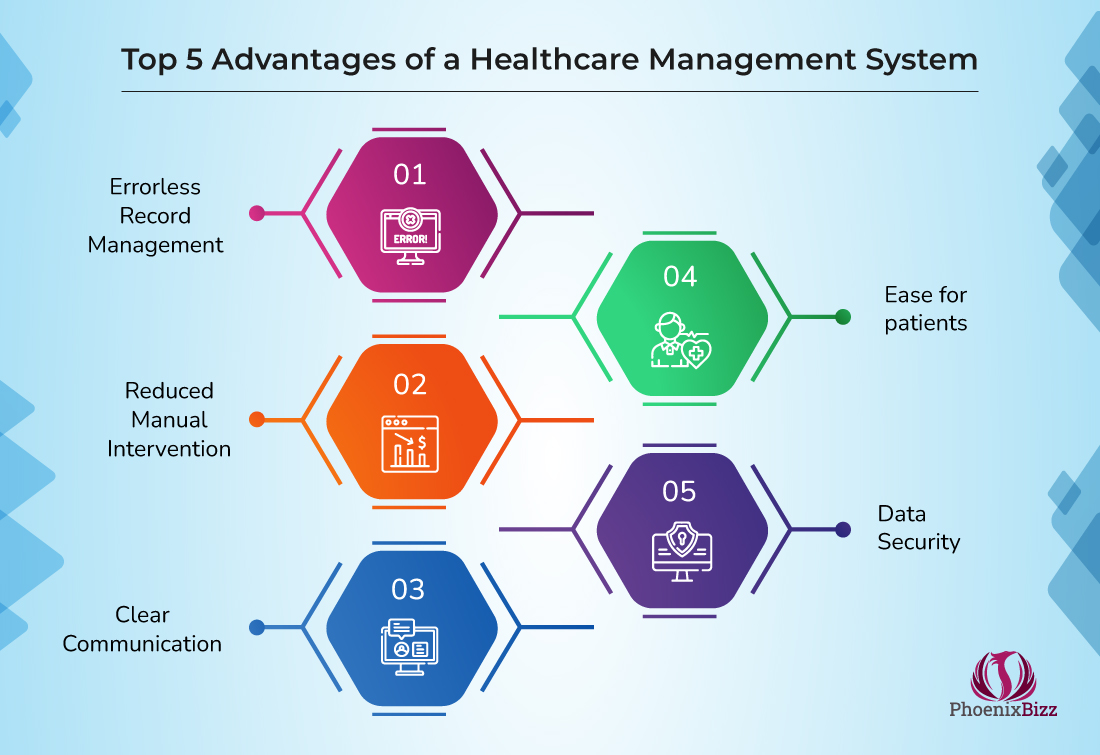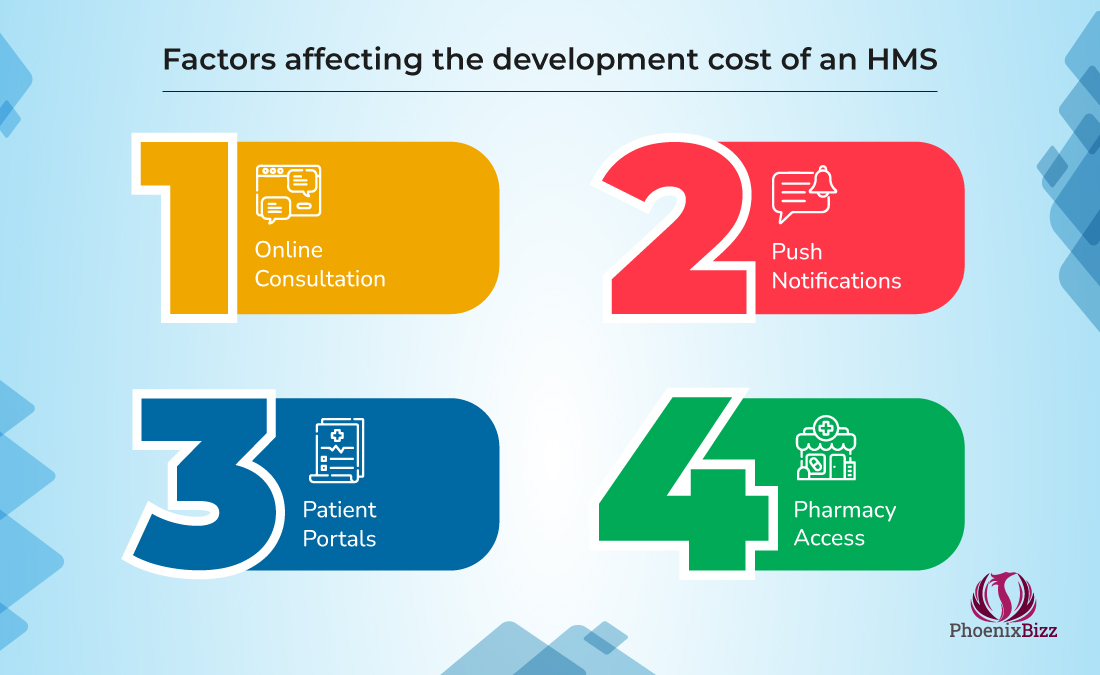September 12, 2023
By: PhoenixBizz Staff Writer
PhoenixBizz is a division of Sofvue, LLC
Printed with permission of Data Titan and Sofvue LLC
Managing a healthcare facility is no cakewalk. From chaotic reception and appointment desks to medicine and test facilities, the work can get cumbersome. Patients with different needs reach the hospitals for proper treatment, and the staff must be on their toes to ensure the delivery of the best services.
Pre- and post- Covid 19 has taught all of us some valuable lessons. The pandemic helped us envision the power of technology. The healthcare industry is now finding solace in healthcare or hospital management systems designed to assist the staff with various duties. Whether you are talking about instant online appointments, or critical care, a lot of these tasks have become quick and easy simply by bringing in technology.
If you are planning to hire a software development company to meet your healthcare management system needs, it is best to first gather some critical information. Having ample knowledge of the system’s functionality, benefits, cost factors, etc. helps you make wise choices. Let’s dive in.
What is meant by a Healthcare Management System?
Technology has grown so much that all industries have their specific management systems, and the healthcare sector is no exception. A healthcare management system is designed to provide a single platform that assists the hospital staff in effortlessly carrying out various operations. A healthcare management system can help patients, users, and hospital staff with numerous tasks:

✅ Appointments
✅ Online consultations
✅ Patient history storage
✅ Treatment progress
✅ Medicine and pharmacy management
A healthcare management system is developed by software development companies according to your facility’s requirements. The most common healthcare management features include computer-based patient records, appointment management panels, video consultations, radiology, and laboratory report management systems, to name a few. A seamless and well-designed system not only provides ease-of-use to patients, but it also helps hospitals to cut costs and increase productivity.
Must Read: How to Build a Healthcare App: A Complete Guide for 2024
Types of HMS Systems
Trained and expert software developers can deliver several types of hospital management systems. Identifying the most suitable system for your healthcare institution is crucial to ensure you invest in the right solution. Here is a list of the diverse types of healthcare management systems that are vastly used in the medical industry:

#1 Electronic Health Record Systems
EHR systems are digital versions of patients' paper or file records. They store patient medical history, diagnoses, medications, treatment plans, immunization records, and more. EHRs are designed to be accessible to authorized healthcare providers across different healthcare settings for seamless information sharing and better patient care coordination.
#2 Pharmacy Management Systems
Pharmacy departments are federally bound to maintain 100% accurate records of medicine inventories. A pharmacy management system assists in easy administering prescription orders, medication dispensing, inventory control, and patient counseling.
#3 Radiology Information Systems
Specifically designed for the radiology department, these systems help in efficiently managing all tasks related to MRIs, CT scans, X-rays, etc. They also manage patient scheduling, image, and data storage for appointment purposes.
#4 Laboratory Information Systems
Also referred to as LIS, these systems are used by clinical laboratories to manage and store data related to patient specimens, test orders, results, and quality control. They help automate laboratory workflows and ensure accurate and timely reporting of test results.
#5 Medical Billing Software
This system is designed to streamline and automate the complex process of generating and submitting medical invoices to insurance companies or patients. It helps medical professionals manage billing, coding, and claims efficiently, reducing errors and improving revenue cycle management in healthcare practices.
Advantages of a Healthcare Management System
The Centers for Medicare and Medicaid Services predicts that the US national healthcare expenditure is expected to reach $ 6.2 trillion by 2028. Healthcare professionals are trying their best to leverage innovative technologies for delivering better and more accurate results. Here are a few reasons healthcare institutions are continually moving to automated hospital management systems:

1. Errorless Record Management
One of the key advantages of an HMS is the efficient management of patient records. Traditional paper-based systems are prone to errors, misplacement, and damage. In contrast, an HMS stores patient data electronically, ensuring easy access, accurate record-keeping, and the ability to update information in real time.
2. Reduced Manual Intervention
From appointment scheduling and billing to inventory management, an integrated system reduces the need for manual intervention. Automated appointment scheduling minimizes the chances of overbooking or missed appointments, enhancing patient satisfaction.
3. Clear Communication
A Healthcare Management System also plays a pivotal role in enhancing communication and collaboration among healthcare providers. This helps in:
✅ Physicians, nurses, pharmacists, and other staff members can easily access and update patient information, lab results, and prescriptions.
✅ This seamless sharing of information results in better-informed decisions and coordinated care.
✅ Timely and accurate information leads to improved patient outcomes.
4. Ease for patients
Patient engagement is crucial for successful healthcare delivery, and an HMS can significantly improve these systems. Many systems offer patient portals, allowing individuals to:
✅ Schedule appointments.
✅ Access test results.
✅ Communicate with healthcare providers securely online.
5. Data Security
All reliable software development companies deliver management systems that comply with healthcare regulations like HIPAA. Access controls, encryption, and audit trails are often built into these systems to ensure that patient information remains confidential and protected from unauthorized access.
Factors affecting the development cost of an HMS
The cost of healthcare management system development varies depending upon the software development company you choose. Factors like the project size, customizations, deadline for project delivery, etc. also play a crucial role in determining the overall costs.

Features and how they affect the development cost
➤ Online Consultation
Incorporating this feature in your system requires audio-visual technologies. The system should also support high quality video for seamless communication along with proper encryption for added security.
➤ Push Notifications
Adding this feature certainly adds to the development cost as the back-end and front-end teams implement needed algorithms.
➤ Patient Portals
Patient portals empower individuals to access their health records, schedule appointments, and communicate with healthcare providers. Building intuitive and secure patient portals demands user authentication, data encryption, and responsive design across various devices, contributing to development costs.
➤ Pharmacy Access
Patients should be able to access the pharmacy store online, which would mean medicine delivery, online payments, and more. Adding these payment gateways, inventory management, prescription uploading space, etc. also affects the development cost.
Expensive technologies used in developing HMS
A hospital management system involves the use of high-end technologies like predictive analytics, artificial intelligence, machine learning, cloud computing, etc. Here is a list of some of the technologies that heavily affect the overall development cost of a healthcare management system:
➤ Artificial Intelligence & Machine Learning
AI and ML revolutionize the healthcare industry by enabling disease diagnosis and personalized treatment recommendations. These technologies also help in optimizing treatment plans.
➤ Cloud Computing
Cloud-based HMS solutions offer scalable and cost-effective storage of medical records, ensuring easy access to patient data from various locations. Cloud technology also supports real-time collaboration and data sharing among healthcare providers.
➤ Predictive Analytics
The technology works by analyzing vast amounts of medical data to identify patterns, predict disease trends, and optimize treatment plans
➤ AR and VR
Augmented reality and virtual reality are taking the world by storm by enabling real-life experiences virtually. In the healthcare industry, they are used in medical training and patient education within an HMS. Surgeons can use AR during surgical procedures for guidance, while VR can simulate medical procedures and help patients understand their conditions and treatments.
◾Choosing a development firm
A reliable and experienced software development company can make the entire procedure smooth. Here’s some of the factors you need to consider in choosing a software development company.
◾Clear Communications
A company that communicates well with its clients delivers the best results. Effective communication is essential throughout the development process. Look for a company that maintains transparent communications, keeps you informed about progress, and actively involves you in decision-making.
◾Unique UI/UX Designs
Design is one of the most critical elements associated with software projects. If your software, website, or app does not have a user-friendly design, users will leave, and employees will simply not use the technology. Always hire a service provider who offers a design team that delivers unique and attractive designs based on the target audience.
Also Read: CRM Software Development for Healthcare: A Beginners Guide
Frequent questions asked about Healthcare Management System
1. How much do you charge for Healthcare Management System development?
A healthcare management system is developed using high-end technologies and robust resources. The overall development cost depends on features, software type, technologies and tools used, etc. You can contact our support team to get a price quote for your project, but projects can costs from $25K to over $1MM.
2. How do you ensure compliance with HIPAA and other regulatory bodies?
We rigorously adhere to HIPAA and relevant regulations by implementing strict data encryption, access controls, regular audits, and staff training. Our thorough processes ensure patient data security and compliance.
3. Do you provide custom software development services?
Absolutely, we specialize in crafting tailored system software solutions. Our expert team collaborates closely with clients to understand unique needs and deliver custom-built software that precisely meets their requirements.
Conclusion
Hospital management systems have now become the backbone of the healthcare sector. They provide ease, accuracy, and timely solutions by leveraging innovative technologies. If you wish to increase your hospital’s revenue by automating different work processes, PhoenixBizz is always available to assist.
We are a leading software development company providing healthcare software development services. With two decades of experience, we have the expertise needed for both mobile app and custom software systems.
Wondering what makes us unique?
Our dedicated team of trained and certified analysts, developers, designers, engineers, and coders can assist you in several ways:
✅ Custom software development
✅ Mobile app development
✅ Management systems specific to various industries
We have designed and developed $23MM in solutions for various clients conducting businesses in different industries. Our robust infrastructure allows us to deliver error-free software solutions.
PhoenixBizz, a division of Data Titan and Sofvue, LLC, is trusted for providing highly optimized custom software solutions. To learn more about the services provided by PhoenixBizz, contact us at 623-845-2747.
Read More: Healthcare Mobile Application Portfolio
RE: 11631
Citations
Source: Insider Intelligence
https://www.insiderintelligence.com/insights/healthcare-industry/









